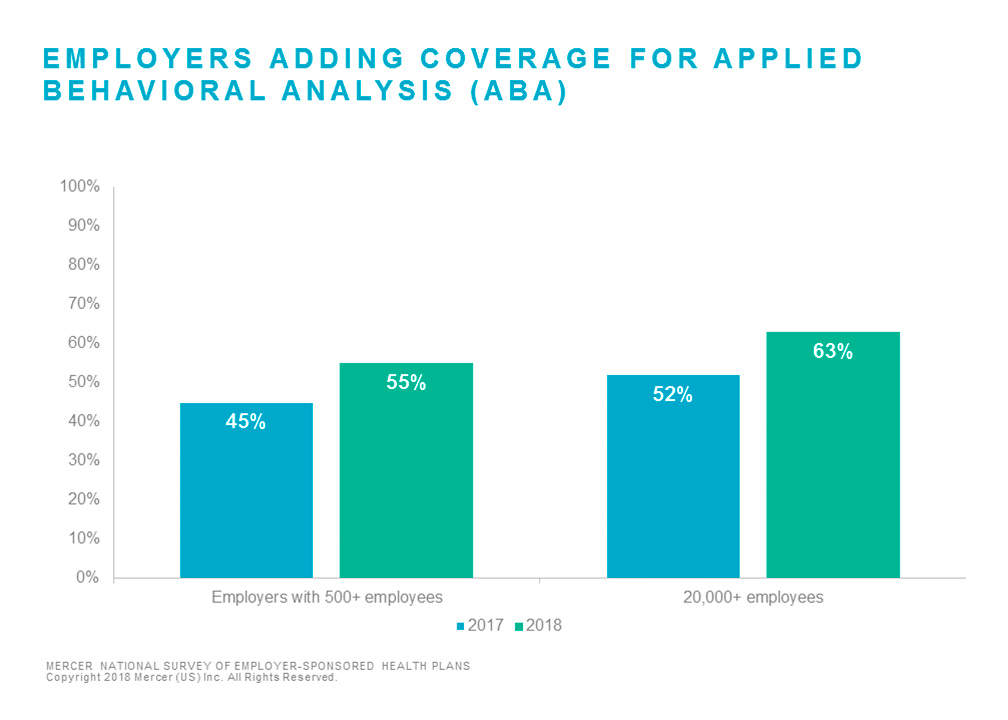Beyond Autism Awareness: Making ASD Acceptance Part of Your Well-being Program
Mercer’s National Survey of Employer-sponsored Health Plans documented employers’ growing commitment to employee well-being. In fact, over three-fourths said that a focused strategy for creating a culture of health would be important or very important over the next five years. Here’s a suggestion: Take a look at what your organization is doing to support employees who care for a child with an autism spectrum disorder (ASD).
You may not be aware of just how common ASDs have become. According to the CDC, one in 59 children have an ASD. This means there almost certainly are employees in your workforce caring for a child with developmental disabilities. As a group, caregivers have greater levels of anxiety and depression, experience increased absenteeism and work limitations and face higher health care costs. One critical way to help is to ease the financial burden of providing children with ASDs with the enhanced care they need to achieve their potential.
Over the past few years, employers have been adding coverages for ASD treatment. Most employers with 500 or more employers provide coverage for at least some ASD services (89 percent, up from 84 percent in 2017). While diagnostic services are the most common type of service covered (74 percent cover speech, occupational and physical therapies and 70 percent cover medication management), inpatient and outpatient treatment services are covered by 64 percent. Importantly, coverage for applied behavior analysis (ABA) or other intensive behavioral therapies is offered by more employers each year ‒ 55 percent did so in 2018, up sharply from 45 percent in 2017 and 42 percent in 2016. A growing number of providers and researchers link behavioral interventions with positive outcomes.

In addition, 44 percent of employers provide family support services for children with disabilities. For parents who must find and obtain crucial services, manage the financial strain of paying for various therapies, and plan for the future, this type of resource can make a big difference.
And what about supporting people with ASDs in your workforce? Neurodiversity is the natural variances in human cognition that lead to differences in the way we learn, communicate, and behave. Neurodiversity includes neurological conditions such as autism spectrum disorder, developmental delays, ADHD, social anxiety disorders, dyslexia, etc. Neurodiverse individuals bring strong skills and talents to markets that currently have a shortage of workers and can bring new perspectives to a company’s efforts to create or recognize value. There are specialty vendors that can help your organization learn how to successfully deploy and support a neurodiverse workforce. For employers looking to create a culture of health and inclusion, this could be an important addition to your five-year strategy.
